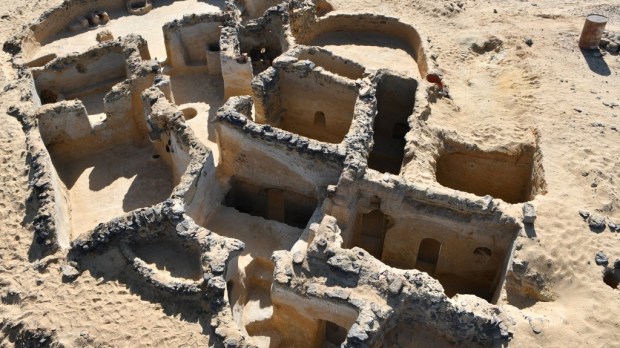Wednesday 8 June 2022
1. Nigeria church attack: Bishop prays for Christ’s light to shine amid darkness
2. Priestly celibacy, the psychological experience of a priest, and abuse
3. Iraqi Christians are “patriots” and not “infidels,” affirms Cardinal Sako
4. Egypt races to restore Biblical sites along the “Holy Family Trail”
5. An investigation into the relics of Korea’s first Catholic priest
~
Nigeria church attack: Bishop prays for Christ’s light to shine amid darkness
“My first sentiment was utter disbelief … How can a human being do this!? Where is this coming from!?” said Bishop Jude Arogundade of Ondo, Nigeria, responding to the massacre of at least 50 congregants when gunmen stormed St. Francis Xavier Church on Pentecost Sunday. In an interview with Vatican News, Bishop Arogundade expressed his disbelief at how anyone would go into a holy place, “a church for that matter,” with the intention of killing people. Amidst the grieving families and injured people recovering in the hospitals, Bishop Arogundade tried to offer words of encouragement. “We will get over this. This is a stage. This, too, shall pass,” he assured. “And we will have a stronger Church, a better Church, a more beautiful Church, a Church that the world can be proud of.” He also asked the faithful to pray so that “the light of Christ may shine in this darkness that is hovering over us.”
Vatican News, English
Priestly celibacy, the psychological experience of a priest, and abuse
As the Church in Italy officially begins its work of investigating abuse committed in its midst, the website Caffestoria interviewed Father Stefano Guarinelli, a psychologist and specialist on the subject. The priest regrets the polarization of the debate on celibacy. According to him, the problems related to abuse do not come from the priesthood but “from the way the culture presents affectivity and sexuality.” He considers that “those who choose celibacy and live in this culture cannot remain insensitive to certain messages” and come to live “in a transgressive way or in the condition of a double life.” Celibacy, he adds, can represent “a more or less veiled challenge” to the dominant affective and sexual culture and discrediting it would justify “the inalienability of a certain way of living sexuality.” However, he considers that there is in fact “no direct link between celibacy and abuse,” recalling that abuse happens often among non-celibates too.
Caffestoria, Italian
Iraqi Christians are “patriots” and not “infidels,” affirms Cardinal Sako
Contrary to what texts from the Iraqi’s national education system claim, Christians in Iraq are neither “infidels” nor “polytheists.” This is what Cardinal Louis Raphael Sako, Patriarch of the Chaldeans, wanted to forcefully recall in an analysis that will serve as a basis for a possible conference devoted to the emergencies that weigh on the Christian communities in the Middle East. As the press agency of the Pontifical Mission Societies, Fides, points out, Cardinal Sako criticizes in his analysis the fact that the Iraqi Constitution only cites Islam as the source of legislation, thus providing a legal basis for discriminatory practices against other believers. “Christians,” the Patriarch insists, “are indigenous Iraqis and are not a community from another country. They are people of this land, so it is not acceptable to label them as a ‘minority.’” On the other hand, the head of the Chaldean Church castigates the “Christian parties” which “serve only to foment regional nationalisms.” They should instead be real instruments to promote the unity of the whole country.
Fides, English
Egypt races to restore Biblical sites along the “Holy Family Trail”
Before the end of 2022 the Egyptian Ministry of Tourism wants to develop the 25 sites where the biblical Holy Family stayed during exile in Egypt. The idea is to restore the places where the popular faith has already built memorials and, where there is no archaeological evidence, the ministry intends to use virtual reality and lighting systems to help visitors imagine the scene, explains the project coordinator. The government wants to accelerate the construction of the sites in order to revive the tourism sector, strongly affected by the pandemic and the war in Ukraine. According to tradition, the Holy Family arrived in Egypt via Rafah, in the northeast, and then crossed the country for 3,000 km (1,865 miles), making 25 stops in eight governorates or provinces of present-day Egypt. The Family’s stay in the country would have lasted three or four years. The Egyptian Ministry of Tourism has been working since 2014 to develop the locations on the route, in hopes of getting all the sites on the UNESCO World Heritage list.
CBS News, English
An investigation into the relics of Korea’s first Catholic priest
Part of the remains of St. Andrew Kim Tae-gon, the first native Korean Catholic priest who died as a martyr in 1846, have been shared by local Catholic churches and individuals for decades. These relic fragments are scattered among some 200+ institutions and clergy and today are difficult to trace, according to an ongoing investigation by the Archdiocese of Seoul, which admits it should have tracked the sacred remains more appropriately. The investigation reignites a controversy over the preservation of Catholic saints’ relics. The whereabouts of the physical remains of St. Andrew Kim Tae-gon has been in the spotlight since a fragment of his spine was offered for sale on an online e-commerce platform in March, a practice prohibited by the Code of Canon Law.
Yonhap, English

